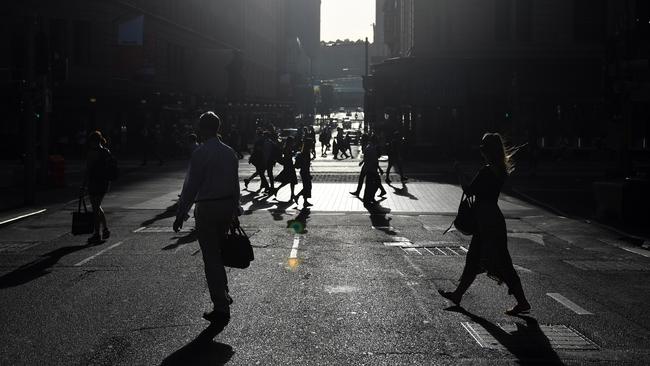Hotels back call for fringe benefit tax freeze to resuscitate ailing hospitality sector
Hotel industry joins accounting giant PwC and calls for exemptions to fringe benefit tax rules to help support ailing CBD cafes and restaurants.

The hotel industry has backed calls from accounting giant PwC for a temporary fringe benefit tax exemption for hospitality, in a move they said would encourage bosses to take their workers out to lunch and help support CBD cafes and restaurants devastated by the working from home trend.
Ahead of the May federal budget, PwC tax partner Ellen Thomas said providing a temporary exemption for hospitality would have the “dual benefit of getting people back to the city and cutting compliance for people in the meantime”.
Australian Hotels Association national president Stephen Donaldson said FBT relief on hospitality would bring “significant benefits” to his hard-hit industry, “especially over the next three years or so as we emerge from the pandemic”.
The need for further support was most pressing in areas such as the CBDs of the country’s two biggest cities, and far north Queensland, he said.
Occupancy rates in CBD hotels in Sydney were at 28 per cent in the week starting January 17, Mr Donaldson said, against 78 per cent the same time a year earlier. Occupancy in Melbourne city central was shy of 40 per cent, versus 90 per cent for the same week in 2020.
“Due to the changed nature of work, we expect (low occupancy rates) to continue for two or three years at least,” he said. Accommodation and meals — not alcohol — should be carved out of FBT rules.
FBT represents about 1 per cent of the tax take in Australia, but many PwC clients “say it takes them as long to complete the FBT return as the corporate tax return,” Ms Thomas said.
“Some parts of the FBT rules made sense in 1986 when they were introduced, but are outdated now.”
Wholesale reform of the FBT regime was best left for the future, as was pursuing other major economic reforms, Ms Thomas said , as it could distract from the post-COVID recovery. “You don’t want to make people worry, you want people concentrating on their businesses and livelihoods at a time like this, and think about major reform later.”
In a submission ahead of the May 2020-21 budget, PwC also said the federal government should consider creating tax concessions attached to patents to incentivise entrepreneurs to commercialise innovations in Australia, rather than selling their research to be developed by foreign firms.
In his pre-budget submission, Australian Industry Group chief executive Innes Willox said there was a risk the robust post-COVID could “stall” when major fiscal programs such as JobKeeper ended on March 28.
He called on the government to move swiftly to announce “key measures” that would help negotiate the transition away from emergency support. Such measures could include targeted support for businesses and workers who continued to suffer from the lingering impact of health restrictions, and a “modest extension” to rules around the immediate expensing of new assets, he said.




To join the conversation, please log in. Don't have an account? Register
Join the conversation, you are commenting as Logout